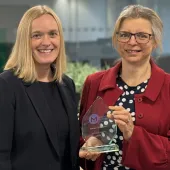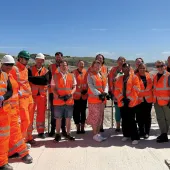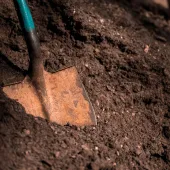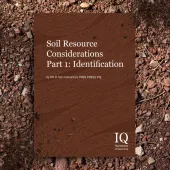The Institute of Quarrying’s ‘Benevolent Fund’
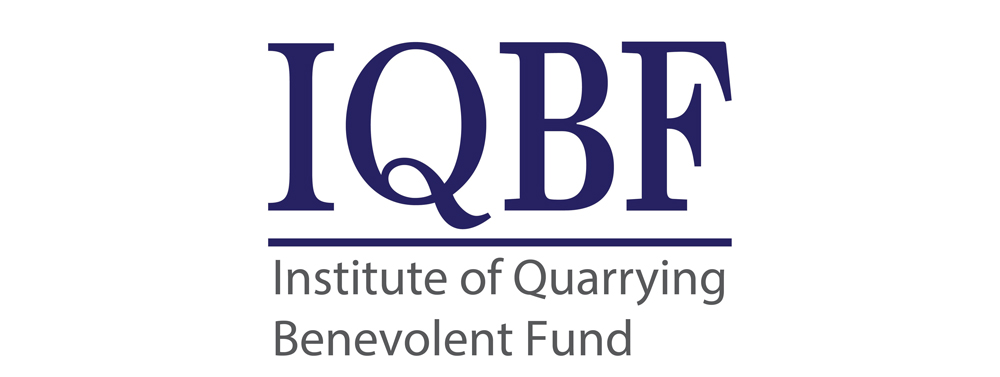
First published in the April 2016 issue of Quarry Management as Benefiting from Benevolence
Commentary on the Institute of Quarrying’s ‘Benevolent Fund’
By Martin Isles, chairman of the IQ’s charitable Fund and past President of the Institute
Dating back to 1925, the Benevolent Fund was established just eight years after that first fateful meeting in 1917 of the Association of Quarry Managers in Caernarfon, North Wales – the genesis of this fine Institute that is known and respected internationally today as it moves ever closer to its centenary year.
In those early days, a pension was a relatively new concept and did not cover a worker before normal retirement age. Eight years before becoming Prime Minister, David Lloyd George had introduced the ‘Old Age Pensions Act’ in 1908 paying a non-contributory amount between 2 shillings and 5 shillings (10–25p) a week, from age 70, on a means-tested basis. But it was not until 1925 and the ‘Contributory Pensions Act’ which saw a State scheme for manual workers and others earning up to £250 a year. This pension was 10 shillings (50p) a week from age 65.
From the humble beginnings of the Institute’s own Benevolent Fund, ‘fast-forward’ to 1996 when a separate IQ Education Fund was formed, the two funds being merged three years later. It was at this time that the first instalment of a substantial bequest was received, following the death of Henry Marshall – a former Chairman and President of the Institute in the 1960s. This unexpected but hugely welcome financial boost was to prove particularly fortuitous in sustaining the activities of the Fund during the protracted period of ultra-low interest rates that have characterized and constrained the investment income of the Fund in more recent years. Whilst recessions come and go, the greater challenge to the Fund is the long-term maintenance of a judicious balance between disbursement of benevolence and preservation of the asset base for future generations. Prudent financial management, however, has avoided long-term negativity in this respect.
By late 2007, on pushing for re-separation of the two Funds, it was finally accepted by IQ Council that ‘Educational Development’ should be managed and funded by separate mechanisms. As a result, the purity of purpose of the Institute of Quarrying Benevolent Fund (IQBF) was reinstated.
Benevolent objective
‘To afford assistance to necessitous Members or former Members or their dependents (the Beneficiaries) by means of gifts, loans or otherwise’
A ‘necessitous’ person is one whose net income falls below defined target levels that are reviewed annually by the Fund’s Management Committee. Where circumstances meet the criteria and spirit of the Fund, financial assistance in the form of non tax-declarable gifts are considered. It is usual for such gifts to bring the applicant’s net income up to the target levels.
Additionally, the Fund also considers making one-off payments to other qualifying individuals in need of temporary assistance. Examples include a contribution towards conversion of a vehicle to allow wheelchair access. Uniquely, monetary help was also granted towards replacement of high-capacity lead-lithium-hydride batteries for a PDQ ‘Powertrike’ – an electric-powered wheel attachment that fits on to the front of a wheelchair.
Governance
The IQBF is operated according to its Constitution, the requirements of which include a Management Committee reporting to the Trustees of the Fund. There are 12 Trustees – currently these are:
Six Honorary Trustees:
IQBF Chairman Martin Isles
IQBF Deputy Chair Paul Calladine
IQ President Anthony Morgan
IQ Chairman Miles Watkins
IQBF Secretary Lyn Bryden
IQBF Treasurer Russell Mason
Four Ordinary Trustees (elected by the IQ Board):
Phil Hutchins
Dudley Lloyd
Ken Bradley
Brian Wiltshire
Two Branch Representatives (elected at the annual IQ Branch Officers meeting):
John McGough
Tyrone Partridge
Martin Isles, an Honorary Fellow of the Institute, was first appointed as the Fund’s Chairman in 2005. A member of the Institute for more than 40 years, Martin served on the IQ Council/Board for 26 years until 2015 and was IQ President from 2010–2012.
The Secretary to the Fund, Lyn Bryden, known to many for her former long service as Secretary to the Institute, handles the initial processing of new applications and prepares meeting papers.
Accountancy input and advice is provided by the Treasurer, Russell Mason, financial director for QMJ Publishing Ltd, who produces the financial data in successive annual reports and accounts.
As Deputy Chair of the Fund, Paul Calladine, partner with legal firm Freeths LLP, affords wise counsel to the Management Committee.
Ensuring the personal touch
Historically, following the long tenure of Mary Roberts MBE as administrator of the Fund, Susan Ashworth then acted as correspondence secretary for 10 years. In 2007, the Trustees decided to merge the newly created role of visiting carer with that of correspondence secretary, by creating the new combined role of welfare officer and appointing Christina Stoner to that role. Christina’s background as a professional carer for elderly and disabled people was and is particularly appropriate to providing a personal contact with beneficiaries, thereby re-establishing the ‘face’ of the Fund previously provided by Mary Roberts. Up to two home visits are budgeted for each year to complement regular conversations by telephone with each beneficiary, in addition to other forms of contact on birthdays and at Christmas time.
It is abundantly clear from successive home visits by the welfare officer that the recipients welcome, unreservedly, the opportunity to ‘put a face to the Institute’. In one case, by dint of this process, further health-related problems – previously unknown to the Management Committee – came to light whereby extra assistance was offered to circumvent an unreasonably long NHS waiting list for an operation.
Eligibility and equality
The prerequisite for eligibility is current or former membership of the Institute of Quarrying of the applicant, though it is more usual for the surviving dependent(s) to apply after the death of the (former) member. When confirmed, the Fund’s officers advise the Management Committee of their assessment of an applicant’s financial circumstances. This aspect of the process has been upgraded very significantly over the last 10 years by the introduction and successive upgrading of a ‘Statement of Circumstances’ form, updated every year by each beneficiary. As well as providing details of an applicant’s income and expenditure, the data also address the issue of tangible non-cash assets. Whilst ‘means testing’ inevitably engenders an intrusive element, the Fund’s Trustees take the view that this information is vital to discharge equitably and properly their legal responsibilities which comprise balancing the auditable disbursement of benevolence with prudent conservation of the Fund’s assets.
By example, the Trustees need to be able to recognize applicants who may be ‘asset-rich but cash-poor’. Such situations require significant care to be taken to ensure that the usage of the Fund’s assets reflect a balanced and realistic approach. Professional services are employed for purposes of house and land valuations, where appropriate. Equally, the Trustees make every effort to assist applicants in accessing appropriate government benefits as it is not the role of the Fund to replicate such funding sources.
During extended periods of low interest rates, it has been necessary to introduce caps on certain aspects of applicants’ expenditure, for example fuel costs. It is also expected that applicants of an age and condition appropriate to employment do, in fact, contribute accordingly to their income. Likewise, offspring living at the applicant’s home, if of working age, are expected to contribute appropriately to the household income.
Recipients do not have a right to continued assistance – if that were so, then the tax status of the charity would change.
Help needed from branches and members
For many decades, across the length and breadth of the UK, the ‘Benevolent Fund’ was the automatic choice of Institute branches when it came to making decisions as to what to do with funds generated by branch activities. In more recent years, low interest rates, coupled with fewer opportunities for Institute social events, tombolas etc, has resulted in much-reduced income.
The stark reality is that, without sustained assistance from the branches, future applications may quite possibly overstretch the financial resources of the Fund. Such a situation would necessitate a scaling back of assistance to the detriment of all beneficiaries.
Each branch chairman has been requested to write to every member of their branch to advise as to the existence of the Fund and its purpose in disbursing benevolence in circumstances approved by the Trustees. In an average year, the Institute loses four members through death. It is not unknown for next of kin to be unaware of the Fund and thus miss out on financial assistance at a time when such changes of circumstance place unwelcome stress and often unfamiliar financial strain on surviving family members.
‘Charity begins at home’ may be an old cliché, but this is your Institute. As individual members, do please consider making a personal donation to the Fund, or organizing a sponsored bike ride or bake off etc. And especially if you are a branch chairman or a committee member, when it comes to making charitable donations, we would be most grateful if you retain uppermost in your minds the financial needs of your Institute’s own Benevolent Fund. Thank you.
- New cases of hardship should be addressed to Lyn Bryden, IQBF Secretary, by writing in the first instance to the Headquarters address of the Institute of Quarrying in Nottingham.



